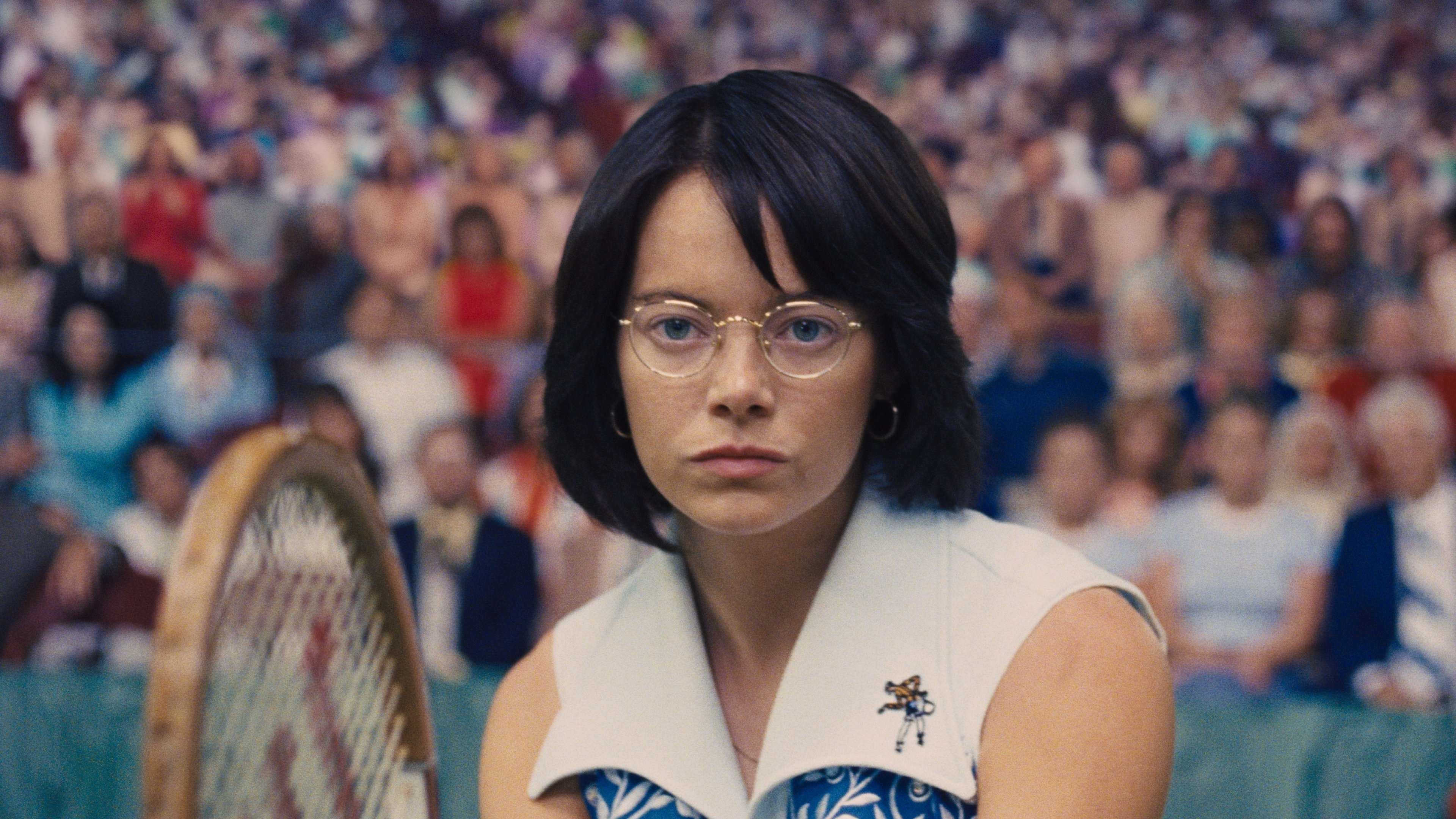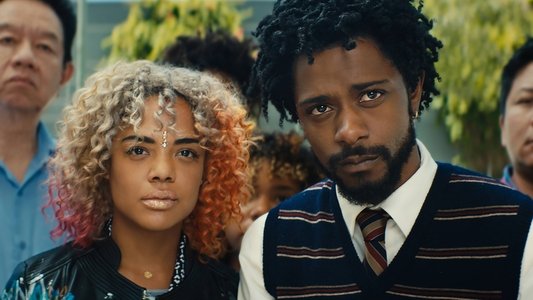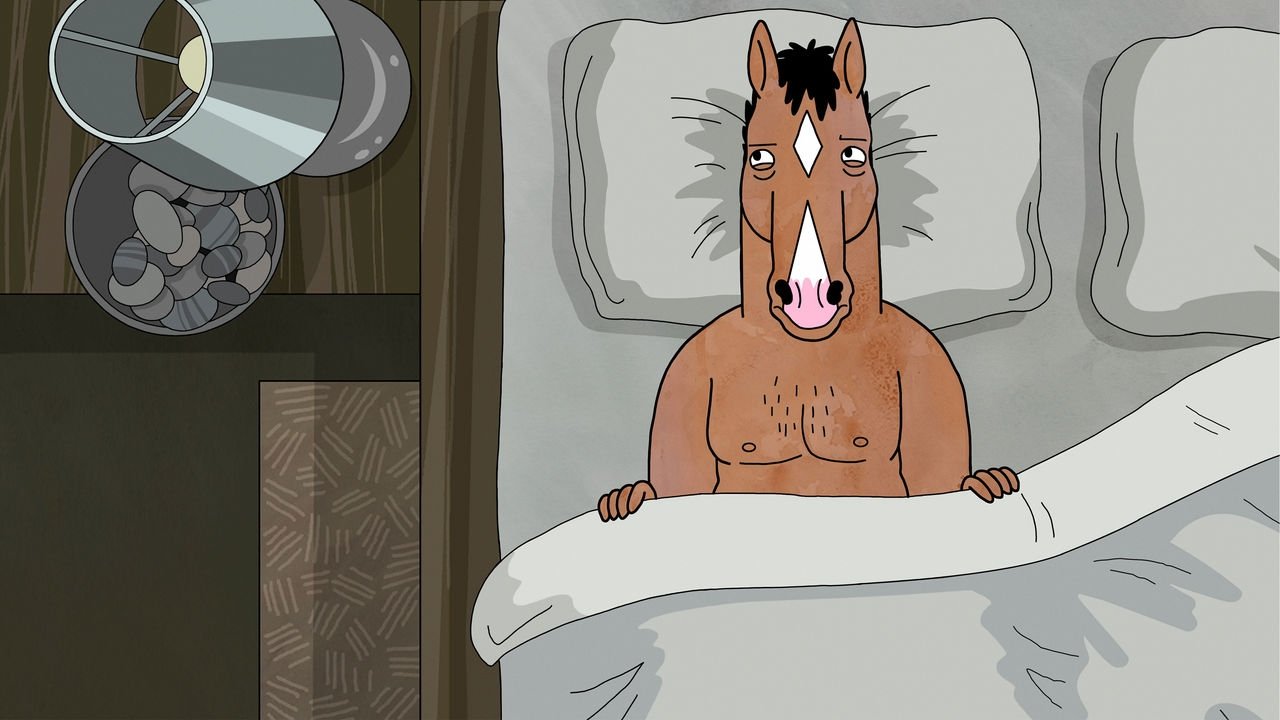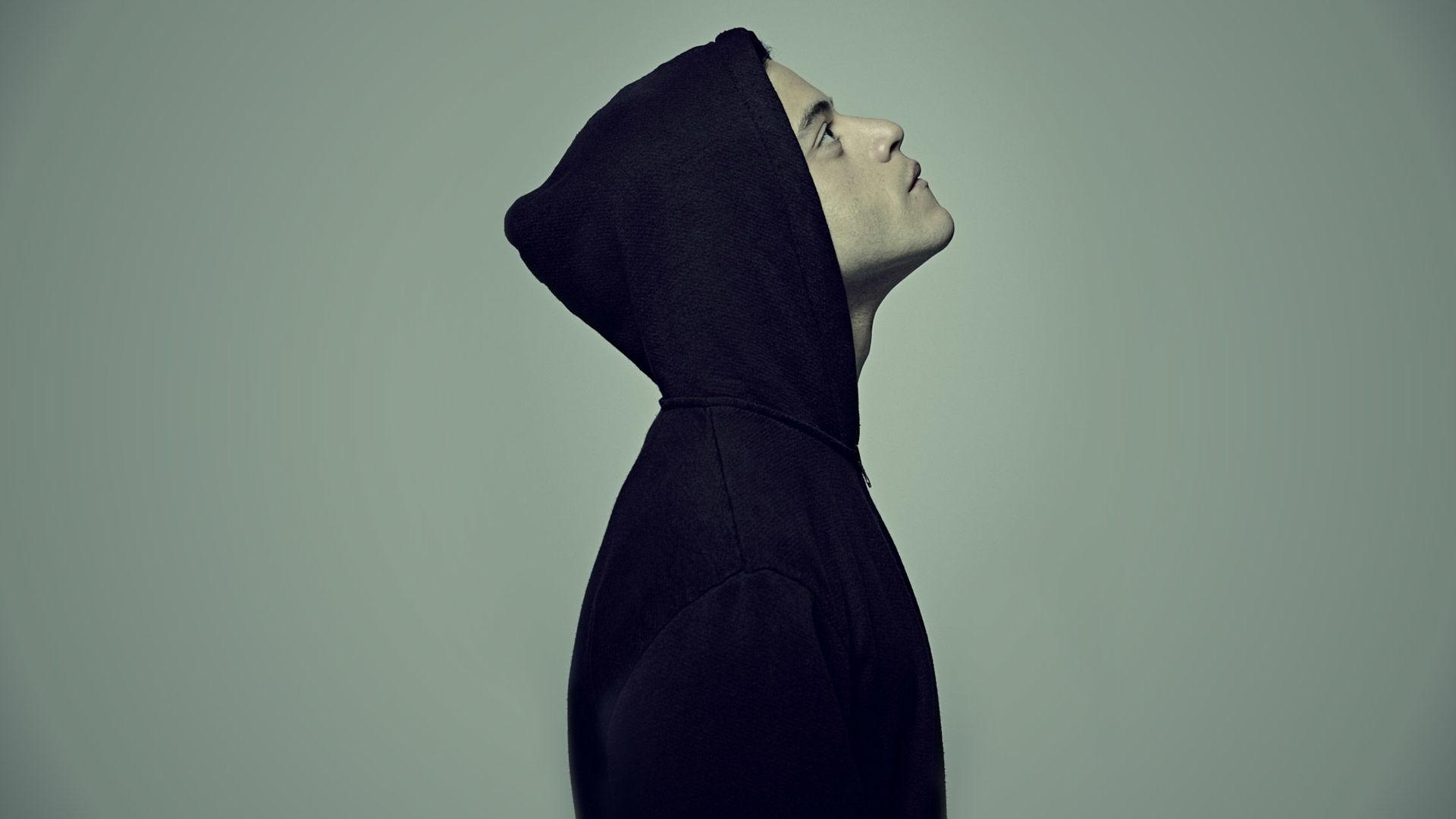Seen in… September

Emma Stone as Billie Jean King. Image via The Movie DB.
Between work, volunteering, house repair, dental visits, sketching and reading I’m not sure how I saw anything much in September. I completely missed the film festival and attempts to recreate one in my own home fell flat. In fact, two shows I'm writing about here are ones I saw ages ago and forgot to add (Battle of the Sexes and Mr. Robot) so clearly I’ve been not only too busy to watch stuff but also to busy to write about it. Lately it seems I start these posts with "I'm so busy I can't believe I watched anything" which sounds like some kind of woeful, pathetic brag, which it definitely is not. That said, I'm going to rededicate myself to watching some real quality stuff, right after I finish this Marvel series I want to catch up on.
Battle of the Sexes
A fictionalized account of the actual event of the 1973 tennis match between Billie Jean King and Bobby Riggs. Emma Stone plays Billie Jean King while Steve Carrell plays the ex-pro and aging hustling, self-promotional Bobby Riggs. This is a rare thing. A bio-pic set around a real event that doesn’t suck. The context of both King and Riggs is vital to the story. Billie Jean King, who was the number one female tennis player at the time was part of a women’s tour that was fighting both for survival and equal pay at a time when women were burning bras and protesting societal misogyny. Bobby Riggs was a retired tennis pro and serial promoter who also had a gambling addiction which had led to the demise of his marriage. Riggs saw a moment and proposed a match between himself and King to determine whether a female player in her athletic prime could defeat a male player, even one well past his prime (Riggs was 50-ish at the time). It should be noted that not too long ago former pro John McEnroe, 59, has claimed that he thought he could still beat Serena Williams. The difference is that McEnroe was probably serious whereas Riggs depicted himself as a lazy, vitamin swallowing, middle-aged chauvinist pig (going so far as to pose for photos with a young pig). That he wasn’t vilified for such showmanship, was a testament to the times and the charm of Bobby Riggs. What no one knew however was that Billie Jean King was struggling with her own marriage at the same time. The stress of life on the road had put distance between King and her husband while she was discovering her homosexuality with an affair with Marilyn Barnett, a local stylist she had met on the tour. Barnett is played by the amazing English actor Andrea Riseborough who by some unknown alchemy has the ability to portray women of immense sexiness or incredible dowdiness merely by how she wears her hair or by how she carries herself. The scene between Riseborough and Stone when they first meet is unbelievably erotic despite it being a simple moment in a barber’s chair at a salon.

The look of love (witch). Image via The Movie DB.
The Love Witch
A beautiful woman discovers witchcraft and intends to use it to find the man of her dreams, one who would be solely devoted to her. This film is an almost obsessive recreation of a style of 1960s erotic horror or thriller films. It genuinely looks like a film from that era despite the occasional anachronistic appearance of a contemporary car or building. I thought this would be similar to the film The Duke of Burgundy, another contemporary film which reimagined the styles and tropes of 60s erotic thrillers as a more potent allegory of feminism and society. But it wasn’t like that at all. It was a very simple B movie thriller that very accurately looked like it was made in the mid-60s. Perhaps the film makers strove to tell the tale of sexy witches as a parable of feminine sexuality and of how women who own and take control of their bodies are slut-shamed or cast as some kind of deviant but that would be giving them too much credit.
Henry’s Crime
Keanu Reeves plays Henry, a sort of empty vessel of a man (hard to believe I know) how is convicted of a crime he didn’t commit. While in prison he meets Max, played by James Caan, a wise and fatherly career criminal. Upon his release, the aimless Henry seeks a purpose and settles upon the idea of actually robbing the bank he never robbed despite serving time for the crime. His reason is based on an old news clipping that a tunnel exists between an old theatre and the bank (stop me if you’ve heard this one before). To access the tunnel Henry takes a job at the theatre and accidentally becomes cast as a principal in their production of Chekov’s The Cherry Orchard. For some reason unbeknownst to me, this particular play is often used as the story within the story of a lot films. The plot of the play invariably relates some subtext of the film’s plot or parallels it in some way. I can think of at least three films where this play is one depicted in the movie (including one about the staging of the play itself). There really isn’t much more to say about this movie or why I even saw it, but for at least one moment I understood the zen of Keanu Reeves. He is an empty vessel and the viewer either fills him with his or her perceptions or does not. It’s the viewer that imagines Reeves as an actor much more than Keanu Reeves taking any possible actions to convince us of it.
Iron Fist Season 2
Just when it got good, it got got. This Marvel show on Netflix based on the character of the Immortal Iron Fist has just been cancelled. In this season Danny Rand, the Iron Fist, is fighting an aimless and seemingly pointless street level battle to protect his neighbourhood and searching for his own reasons for doing so. His girlfriend Colleen has literally hung up her sword and has taken an active role volunteering for social change. In the middle of their unclear situation arrives Danny’s childhood friend, Davos, who has decided to claim the Iron Fist (the source of Danny Rand’s power) by force which is something he sees as his birthright. To do so he has teamed up with Joy, another childhood friend of Danny who, for reasons that are stated explicitly yet make no sense whatsoever, also seeks revenge. Despite this tangled mess, this series succeeds where season one failed. The emphasis shifts away from the lead character of Danny Rand and has some fun crossover moments with other Marvel shows (namely Luke Cage). By having the main character ask what his purpose really is, it seemed the show recognized the hole at the centre of season one. In the melee that is the climax of the season, dynamics have shifted and the last few moments offer a glimpse of what teased at being an awesome season three which now we’ll never see.
A Futile and Stupid Gesture
Netflix continues to drain the nostalgia swamp with this account of the history of National Lampoon Magazine and its founder. National Lampoon is a little like the British radio show the Goonies. It was the fruit that bore more offspring than you can imagine. There’s a lot of recognizable faces and a few good performances but over all this movie seemed like something that would’ve been a mildly interesting book or tale to tell over an evening with friends but not such a great movie.

Lakeith Stanfield and Tessa Thompson in "Sorry to Bother You". Don't worry, it's no bother. Image via The Movie DB.
Sorry to Bother You
After seeing Spike Lee’s BlacKkKlansman I really wanted to make it a double bill with this movie which some critics were saying was like 2017’s Get Out (or better). It isn’t. It’s good, just not quite “Get Out” good, though there was a moment in the third act or epilogue when we realize we’ve been played so I guess that knowing “meta” twist is thing that enabled the comparison to “Get Out”. The story is very simple. Cassius Green, played by Lakeith Stanfield is a broke young black man looking for work. At wit’s end he takes a job as a telemarketer but only finds success after a more experienced black co-worker advises him to find his “white voice”. By using his white voice on the phone, he disguises his blackness and earns the trust of the white customers he is trying to sell to. The film is set in a sort of parallel world where large corporations are cartoonishly evil. Through Cassius Green’s experience we see identity politics laid bare and satirized as well as questions around the nature of work and what “success” even means.

Bojack Horseman. Image via The Movie DB.
Bojack Horseman Season 5
The visual style of this animated show is very “take it or leave it” and has that hipster look of affected badness (with apologies to the talented and funny illustrator and designer of the show). Yet, you shouldn’t let that dissuade you from trying it out. This show is one of the sharpest parodies of show biz and Hollywood, pop culture and our current media that you’ll find. It’s also much more than that, as it is a pretty effecting story of one massive jerk’s attempt at becoming a better person, even if he is a horse and an egotistical minor celebrity (oh it’s also a massive send-up of “celebrity culture” too). Will Arnett is excellent as the lead, Bojack Horseman but is just one of the many great talents adding their voices to this show.
The Good Place Season 2
This philosophy masterclass disguised as a network sitcom continues to surprise and delight. The premise is that a quartet of people who have died and gone to the Good Place are actually part of one demon’s experiment to find new ways of torturing souls in the hereafter. What is so surprising is that, well, a show that on paper sounds like an updated version of “Highway to Heaven” is actually so much more, so much better and so much funnier.
The Polka King
Jack Black stars as Jan Lewan, a Polish-American polka band leader who only wanted to achieve all of the American dreams at the same time. Fortune, fame, posterity, admiration and wealth were the simple goals of a guy who dreamed big for both himself and his wife, played by Jenny Slate. Unfortunately, his surprising success was entirely fuelled by a Ponzi scheme propped up on the investment money of his elderly fans who just loved him to bits. Apparently this was based on a true story but I’m sure the real Jan Lewan was nowhere near as fun as Jack Black. Unfortunately this movie is also not as much fun as Jack Black - though admittedly a scene with Jason Schwartzman at the Vatican did have me laughing out loud. One loud laugh does not a good movie make however. The odd thing is you know this whole scheme is going to collapse and it is always surprising just how stupid the elderly are with their money. I mean, they spent their entire life being good with their money, so how does one polka band talk you out of it?

Rami Malek as Eliot Alderson. Image via The Movie DB.
Mr. Robot Season One
I love this show of an extremely talented hacker, Elliot Alderson, played by the great Rami Malek, who wreaks chaos on the aptly named Evil Corp using the power of coding, fishing scams, trojan viruses and brute force scripts to hack for good (maybe?) The authenticity of the tech revealed in the show isn’t at all offset by some of the lesser realistic aspects (it is television fiction after all) and it will make you seriously reconsider your social media habits and the strength of your chosen passwords. Yet, near the end of the season the show veers decidedly into “Fight Club” territory (“It was YOU all along?!” Or similar) which kind of pissed me off. Though having said that, you, dear viewer become a participant in Elliot’s mental illness (condition?) and addiction, which, while a debatable plot device, it is certainly treated with insight and with respect. It’s clever and engaging and most importantly very, very paranoid. You may want to consider covering your computer’s built-in camera with a bit of sellotape after episode one.


0 Comments:
Post a Comment
<< Home